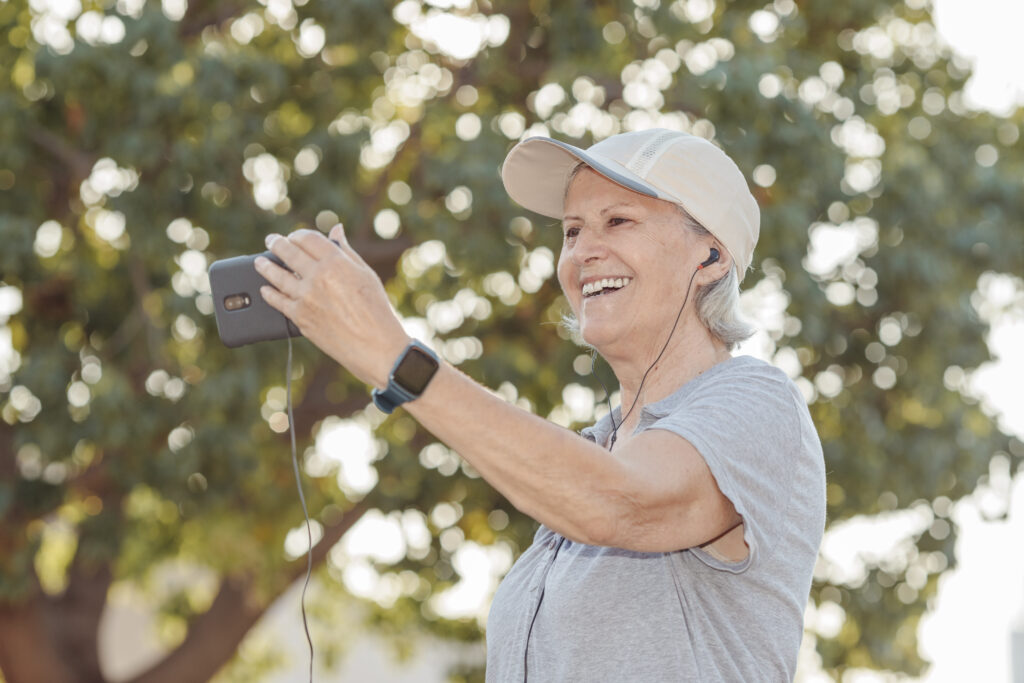Is aging a slippery slope into frailty and cognitive decline, or can we defy the odds and thrive well into our golden years? The truth about aging might surprise you. With a wealth of research now at our fingertips, it’s time to dispel the outdated notions that once defined what it means to grow older. Healthy aging strategies are not just wishful thinking; they’re a roadmap to a life full of vitality, regardless of the number of candles on your birthday cake.
Many subscribe to the belief that once we hit a certain age, our health inevitably wanes—that dementia, a sedentary lifestyle, and a decline in sleep quality are just par for the course. However, did you know that in 2020 there were 48 million licensed drivers over the age of 65, showcasing not an inevitable decline but a 68% increase in active, engaged senior drivers since 2000? Or that a mere one-third of people over age 85 develop some form of dementia, leaving a majority untouched by this condition?
It’s time for some myth-busting aging wisdom. Contrary to the pessimistic view, one in five men over the age of 50 will confront an osteoporosis-related fracture, which means proactive bone health is essential. Also, those nightly seven to nine hours of sleep we were once told were less necessary with age? Turns out, senior health experts agree that older adults need just as much rest as their younger counterparts to maintain optimal well-being.
It’s essential to highlight how being physically and mentally proactive can significantly influence one’s quality of life. Studies show that not all older individuals will experience changes affecting their driving abilities, and those who engage in brain-stimulating activities can actually improve memory, as supported by a 2014 NIH study. Moreover, research by Dr. Sara Lazar suggests that mindfulness may help stall the standard cognitive decline in older adults, while physical activity remains a cornerstone for staving off conditions such as obesity and diabetes.
Indeed, healthy aging is not a myth, as studies consistently show that older individuals are less likely to be depressed than younger ones. Circumventing the myths and embracing the realities can steer us towards a more fulfilling journey through our later years. With the proper knowledge and strategies for wellness, the twilight years can be some of the brightest yet.
Demystifying Senior Health: Unveiling the Aging Truth

Aging doesn’t mean you’ll lose your health or stop learning new things. Aging facts show that staying active can make later years better. For example, 65% of seniors enjoy regular exercise, proving exercise is good for them.
Technology and staying connected with others are key. Most seniors, 78%, have gotten used to using digital devices, showing they’re not afraid of technology. And, 70% of them keep up with friends and family, proving they don’t get lonely.
Many think seniors can’t do things on their own anymore. But, 55% of them still handle their daily tasks by themselves. This shows how important it is to support seniors in staying independent, which helps their health.
Many overlook how happy and purposeful seniors can be. Yet, 60% find joy in activities like volunteering and mentoring. This shows aging can open doors for personal growth and helping others.
The idea that memory gets worse with age is a myth. Doing mentally stimulating activities can keep or even boost memory skills. This shows seniors can live full and happy lives, proving aging is a time of growth and learning.
Challenging the Acceptance of Loneliness and Depression in Later Years
We’re looking into wellness myths about aging. Many think loneliness and depression come with age. But, only 40-50% of people over 80 feel lonely often, unlike 20-30% of younger folks. This shows us that these feelings aren’t just part of aging.
Loneliness feels different for everyone, depending on age and culture. In Finland and the Netherlands, loneliness grew in the very old. But in Sweden, older adults in rural areas stayed the same for 13 years. This shows we need different ways to help seniors.
Understanding that emotional wellness in older adults can be cultivated through enduring social bonds and a wealth of memories is essential in promoting positive aging.
Many older adults see loneliness as a big issue, but not all feel it personally. Only 13% see it as a personal problem. This shows we need to look at things from different angles in positive aging.
Building connections helps fight loneliness. Being active in the community and staying social can make life better. This shows depression and loneliness aren’t set in stone. They can be beaten with the right support.

Seniors and caregivers should watch for signs of depression. They should get help when needed and use new and old ways to feel connected and happy. By fighting wellness myths, we can make later years better. Loneliness doesn’t have to be a part of aging.
Healthy Aging Myths: Separating Fact from Fiction
In today’s world, it’s key to know what’s real and what’s not when it comes to aging. The truth is, the later years can be full of life and happiness. Aging doesn’t mean you have to slow down or lose your zest for life. With the right approach, many people can stay active and happy as they get older.
Many think that losing your memory is a normal part of getting older. But that’s not always true. Staying mentally active and trying new things can actually make your mind sharper. This is part of a bigger plan that includes regular exercise to keep your body strong and balanced.

Good nutrition is also key to aging well. Eating a variety of foods like fruits, veggies, lean meats, and whole grains gives your body what it needs. Plus, activities like mindfulness can help keep your mind and heart healthy, making your later years more enjoyable.
It’s not just about living a long life, but living a good one. Being around people and staying active is good for your mind and heart. Feeling lonely and isolated can be bad for your health, so it’s important to stay connected and involved.
To make the most of your later years, it’s important to challenge aging myths and stay positive. By embracing these strategies, seniors can look forward to fulfilling lives full of growth and happiness. This proves that aging doesn’t have to mean a decline in life quality.
Unlocking the Realities of Aging and Sleep Patterns
It’s key to grasp the vital role of sleep in senior health. Many think older folks don’t need much sleep, but they actually need 7-9 hours a night. This shows how important it is to clear up myths about aging and sleep. Older adults often face challenges with sleep, like trouble falling or staying asleep. Yet, they still need good sleep to stay healthy.
For seniors, sticking to a regular sleep schedule and having a comfy sleep space is crucial. It helps with mental health, lowers the chance of falling, and keeps them alert. For more on how to mix fitness with good sleep habits, check out this guide here.
Good sleep is key to overall health in seniors. Bad sleep can lead to physical problems, mood changes, and thinking issues. That’s why it’s important to look at what affects sleep, like diet and daily routines. Making changes, like cutting down on caffeine and sugar before bed, can help get the sleep you need.
Seniors should also watch out for things that might disturb their sleep. Avoiding caffeine and making the bedroom a calm place can help. By knowing and using these aging strategies, older adults can greatly improve their health and life quality.
Nurturing the Aging Mind: Lifelong Learning and Memory
Keeping the mind sharp in old age is key. It involves staying active, social, and mentally challenged. Activities like reading, taking classes, or being creative keep the mind sharp. These activities show that our brains can learn and change at any age.
Exercise is also vital for seniors. It helps with both physical and mental health. Activities like walking, yoga, or strength training boost mental sharpness. This is crucial for a healthy senior lifestyle.
Connecting with people of different ages can also improve mental health. These relationships help fight age stereotypes and support each other. They are key for staying mentally and socially healthy.
Seniors should focus on their strengths and set realistic goals. This approach helps them build on their life experiences. Celebrating small wins can make life more fulfilling and improve mental health.
Research shows that seniors who stay social have a lower risk of losing their mental abilities. This highlights the importance of social activities in aging strategies.
Technologies like EVY Light® by OptoCeutics help improve brain functions. This tech boosts gamma brainwaves, important for memory and solving problems. It helps seniors think clearer and feel less foggy, leading to a better senior lifestyle.
OptoCeutics offers real solutions for better mental health. By combining new tech with traditional learning and social activities, seniors can live fuller lives. This approach supports effective aging strategies.
Exercise Myths Debunked: Embracing Activity at Any Age
Exercise is key for senior health and healthy aging strategies, despite myths saying seniors should avoid it. The belief that seniors should be less active is wrong. Studies show that sitting too much doubles the risk of heart disease, making regular exercise vital.
The American Heart Association suggests 30 minutes of aerobic exercise five days a week and two strength-training sessions. This shows age shouldn’t stop you from staying active. Even 20 minutes of walking daily can help seniors stay mobile and reduce disability risks.
Starting to exercise later in life is both possible and beneficial. People in their 70s and beyond can start exercising safely. This challenges the idea that age limits fitness efforts. The World Health Organization now recommends 150-300 minutes of moderate activity weekly for seniors, showing our bodies can stay active at any age.
Combining aerobic exercises like swimming or walking with strength training and flexibility exercises like tai chi or yoga helps seniors stay healthy. By debunking wellness myths, seniors can keep thriving. Age shouldn’t stop anyone from staying fit and well.
Embracing a Good Night’s Rest: Sleep Essentials for Seniors
Getting enough sleep is key for healthy aging. Older adults need seven to nine hours of good sleep each night, as experts like the National Sleep Foundation and American Academy of Sleep Medicine say. Sleep helps with staying alert, feeling good emotionally, and keeping the body and mind healthy.
As we get older, sleep becomes even more important. Sadly, many seniors struggle with sleep problems. About half of them have trouble sleeping and are at risk for sleep apnea. It’s crucial to help them sleep well by avoiding late-night snacks and caffeine before bed.
Regular sleep schedules and avoiding stimulants can make a big difference. Exercise in the evening can also help improve sleep. These habits are key for a healthy life as a senior.
Some seniors use medicine to help them sleep, but experts suggest other options too. They recommend Cognitive Behavioral Therapy for Insomnia (CBT-I) and using melatonin carefully. Trying natural ways to improve sleep can help prevent problems like memory loss and falling.
By following these sleep tips, older adults can get the rest they need. This helps them live their best lives and enjoy their golden years.

